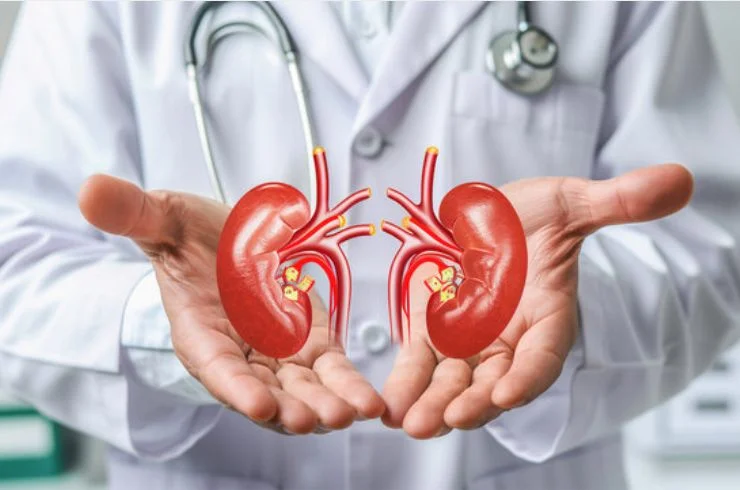
At Khadke Hospital, we recognize that Chronic Kidney Disease (CKD) is a progressive condition characterized by the gradual decline of kidney function over time. The kidneys are essential for filtering waste products and excess fluids from the blood, maintaining electrolyte balance, and producing hormones that regulate blood pressure and red blood cell production. As CKD progresses, it can lead to waste and fluid accumulation in the body, resulting in complications such as hypertension, anemia, bone disease, and cardiovascular issues. Early stages of CKD may be asymptomatic, but as kidney function declines, patients may experience symptoms like fatigue, swelling, changes in urination, and elevated blood pressure.
Several factors contribute to CKD, including diabetes, hypertension, glomerulonephritis, and polycystic kidney disease. Additional risk factors, such as obesity, smoking, and a family history of kidney disease, can increase an individual’s likelihood of developing CKD. Diagnosis at Khadke Hospital typically involves blood tests to evaluate kidney function (including serum creatinine and estimated glomerular filtration rate), urine tests to check for protein or blood, and imaging studies to assess kidney structure.
Management of CKD at Khadke Hospital focuses on slowing disease progression and preventing complications. This often includes controlling underlying conditions, such as diabetes and hypertension, through lifestyle modifications, dietary adjustments, and medications. In advanced stages, patients may require dialysis or kidney transplantation. Regular check-ups with our healthcare team, monitoring kidney function, and adhering to prescribed treatment plans are crucial for maintaining health and quality of life. With appropriate care and management, many individuals with CKD can lead fulfilling lives while effectively managing their condition.